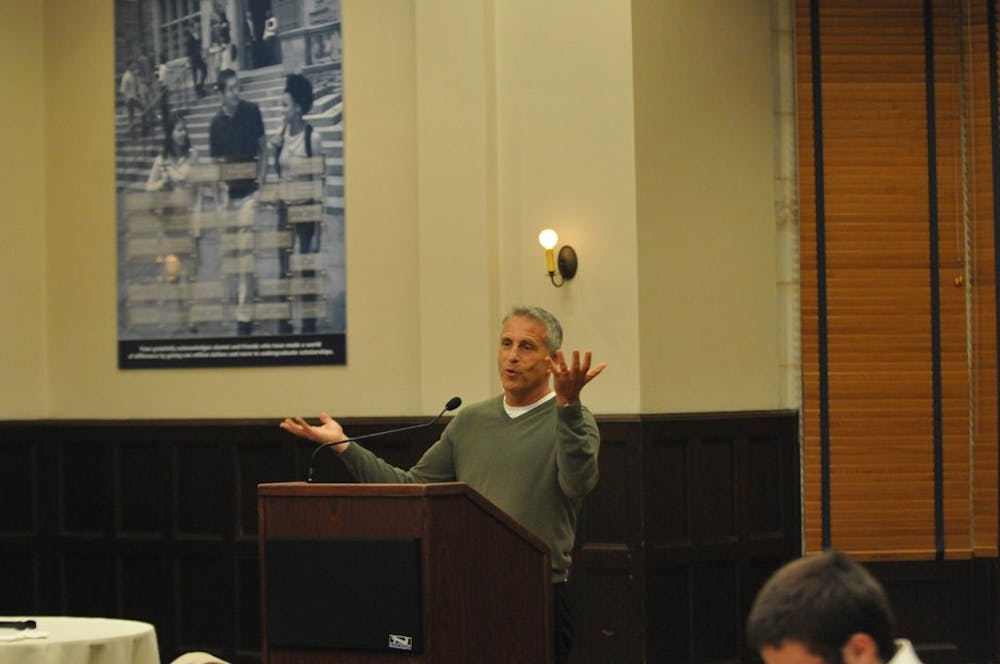When Los Angeles producer Marc Platt became the president of TriStar pictures, executives from the company looked to him to determine their next hit movie. It was then that Platt realized that the choices he made in the film industry could affect social change.
Platt, a 1979 College graduate who produced movies including “Legally Blonde” and shows like “Wicked” on Broadway, was the keynote speaker for the Social Entrepreneurial Network’s second annual conference Tuesday night.
The conference consisted of approximately 160 students and 36 professional mentors from a variety of different industries, including entertainment, real estate, medicine, nonprofit and finance. Before hearing Platt speak, students were paired with mentors in their individual fields of interest who shared their experience both as professionals and philanthropists over dinner.
“I never really considered myself as a social entrepreneur,” Platt said. He recounted the time when his mother took him to the amusement park as a young boy, not to enjoy the rides but to see the sign posted on the exterior of the park reading “Jews, Niggers and Dogs Not Allowed.” He remembered that moment when he became president of TriStar Pictures, pushing for the production of more socially aware cinema, including the movie “Philadelphia,” a story about a lawyer who is fired solely because of his AIDS diagnosis and his homosexuality.
“Nobody’s interested in that subject matter,” he explained the reaction from his bosses. Despite the protest, Platt understood that the movie “could also affect sweeping social change” and move “beyond its box office success.” It was then that Platt realized that his work in the film industry could be described as social entrepreneurship.
President of SEN and College junior Elizabeth Wessel said she wanted the conference to be a “reminder that just because [students] graduated, doesn’t mean they have to end community activity.” She said she hopes that those in attendance will continue to be socially conscious after graduating.
“I really like the idea of applying what I learned not only to the business world, but also outside of the business world as well,” Wharton and Engineering sophomore Siddharth Ashokkumar said.
Mentor Jackie Einstein-Astrof, a 1993 College graduate and part of the nonprofit strategic planning and development industry, said that “as Penn students become future leaders, it’s great that they could interact with the current leaders in many industries and those who are successful beyond their professional accomplishments.”



